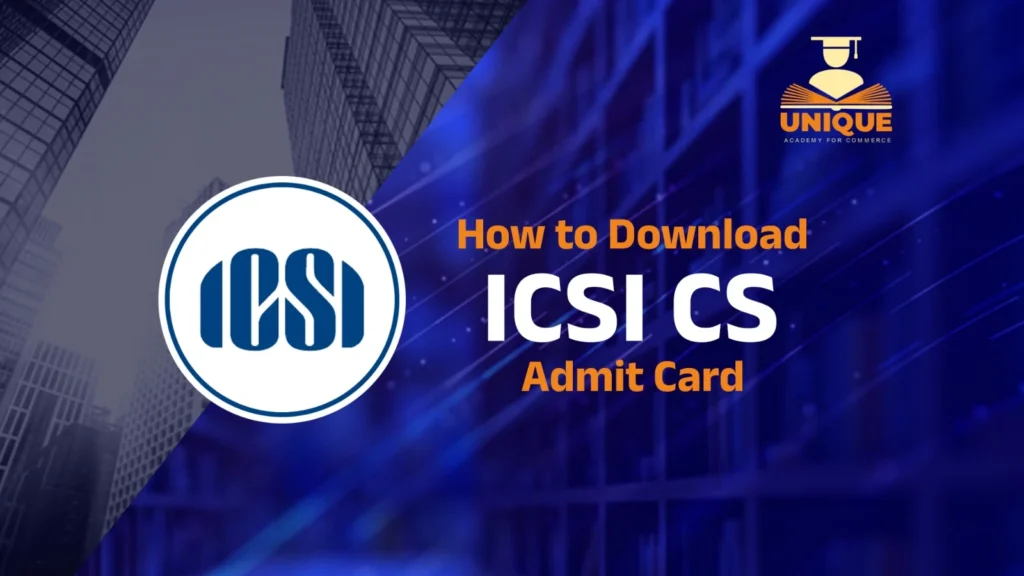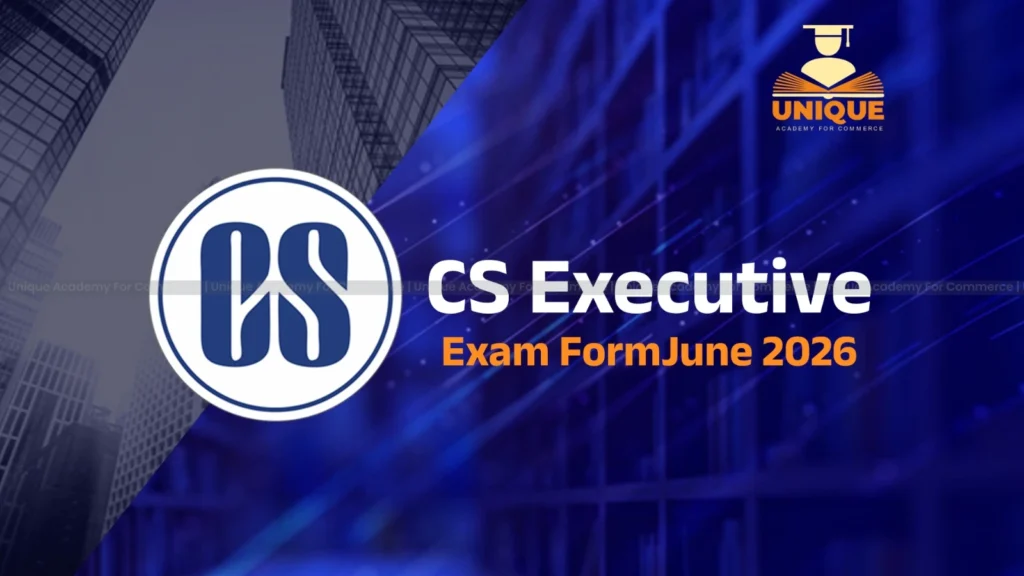The CS Journey: Student to Professional – Stages to Become a Company Secretary

Company secretary is that course offered by the ICSI that is highly recognised in the corporate world in the profile for governance and law. This degree is both noble and highly sought by the candidates seeking to make a career in the legal areas.
Company secretaries help to ensure maintenance of compliance and efficiency in an organisation. Appointment of CS is mandatory for listed entities in our country. In this blog we shall clearly understand the stages of becoming a CS.
Understanding the Role of a Company Secretary
It is crucial to know what a Company Secretary does before discussing the stages. CS is an acronym for Company Secretary.

This is a key managerial post in a specific company to oversee that the company is in compliance with the applicable financial reporting framework governing corporations and companies acts, oversee records, and ensure that the board of directors’ decisions are put into practice.
They play a role of being a link between the board of directors, the shareholders, and the regulatory bodies like SEBI, RBI, MCA, IT Department etc.
Stage 1: Educational Requirements
High School Education
The process of achieving a Company Secretary education starts with the basic education level in high school. Such courses as business studies, accounting and economics are useful. Success in these areas can give a good foundation for further education.
Undergraduate Degree
There is no requirement to have a particular undergraduate degree to begin the CS course, but having a degree in commerce, business administration, or law will be beneficial and will give an edge. These fields offer appropriate information and skills that are useful for a CS.
Stage 2: The Company Secretary Course in crisp

The CS course in India is offered by the Institute of Company Secretaries of India (ICSI) which is the leading institute. The course is divided into three stages:
The course is divided into three stages namely,
1. Foundation Programme also known as the CSEET
The Foundation Programme is the first level of exam that the candidate has to pass. It includes topics such as business Communication, Legal Aptitude and Logical Reasoning, Economic & Business Environment, Current Affairs, Presentation & Communication Skills.
Eligibility: The candidates must pass his/her 12th from any stream except Fine Arts. Candidates can sit for the CSEET exams even when they are un their 12th class.
Join Free CSEET Classes – https://uniqueacademyforcommerce.com/free-cseet-video-lectures/
2. Executive Programme
The Executive Programme is the second tier and can be taken after the completion of the Foundation Programme or immediately after the completion of the degree for those with the appropriate degree.
This stage builds up on the company law, tax laws, securities laws and the economic and commercial laws. It has two sections and the student has to complete both sections in order to move to the next level.
Eligibility: The Foundation Programme or a bachelor’s degree is required for admission to the programme or CA/CMA final cleared candidate.
Get Details CS Executive Exam – https://uniqueacademyforcommerce.com/cs-executive/
3. Professional Programme
The Professional Programme is the last level of the CS course. This stage enables the students to be prepared for higher responsibilities by offering topics such as governance, risk management, financial management, and compliance. It also encompasses the practical sessions and internships.
Eligibility: Clearing the Executive Programme.
Get Details CS Professional Exam – https://uniqueacademyforcommerce.com/cs-professional/
Stage 3: Practical Training to become a company secretary
The CS course includes the practical training which gives the students the opportunity to work in the corporate environment. It typically involves:
1. Short-term Training
One Day Orientation Programme (ODOP) for the newly registered candidates. The Executive Programme is followed by a 30-day Executive Development Programme (EDP) for the students.
2. Long-term Training
Following the Professional Programme, the students are expected to undergo 21 months of management training in a company or under a Practicing Company Secretary (PCS).
3. Specialized Training
Also, there is a 30-day corporate leadership development programme (CLDP) which is compulsory for the CS aspirants, which aims at polishing the managerial skills of the prospective CS professionals.
Stage 4: Membership and Continuing Professional Education

After passing the Professional Programme of the CS and the practical training, the candidates can apply for membership in the ICSI. This entitles them to be referred to as the Associate Company Secretary (ACS).
Continuing Professional Education (CPE)
Still, after becoming a CS, the professionals are expected to continue with their education to keep abreast with the current laws, regulations, and practices. The ICSI requires its members to acquire a specific number of Continuing Professional Education (CPE) credits via seminars, workshops, and other educational activities.
Career Opportunities available to the Company secretary in 2025:
After getting certified as a Company Secretary, the job market is filled with numerous opportunities for you. You can work in different fields like corporate world, financial organizations, banks, government organizations, and regulatory agencies. Today the business environment is highly dynamic and complex, especially with the advent of startups the need of cs professionals has increased a lot. The other option you can take is to practice on your own as a consultant.
The option to start your career as a practising company secretary is also there if you want to start your own firm. This gives you the leverage your skills in a better way by exploring the wide array of services.
Roles and Responsibilities of a company secretary in 2025:
A Company Secretary’s responsibilities are diverse, including:
- Corporate laws and regulations are important in any country and therefore compliance with them is crucial.
- Providing the board with advice on governance issues
- The statutory books and records must be kept up to date
- Coordinating with the authorities and other interested parties
- Managing investor relations
- Overseeing mergers and acquisitions
Final thoughts
It is a process that takes time, effort and passion to become a company secretary and embrace the profession as a lifetime learning process. The steps described here – educational requirements and professional courses, practical training, and further education – prepare future CS professionals for this critical corporate position.
If you want to become a Company Secretary and have a significant responsibility for the companies’ success, follow this structured path.
Stay connected with our blog page for more detailed blogs like this.
















